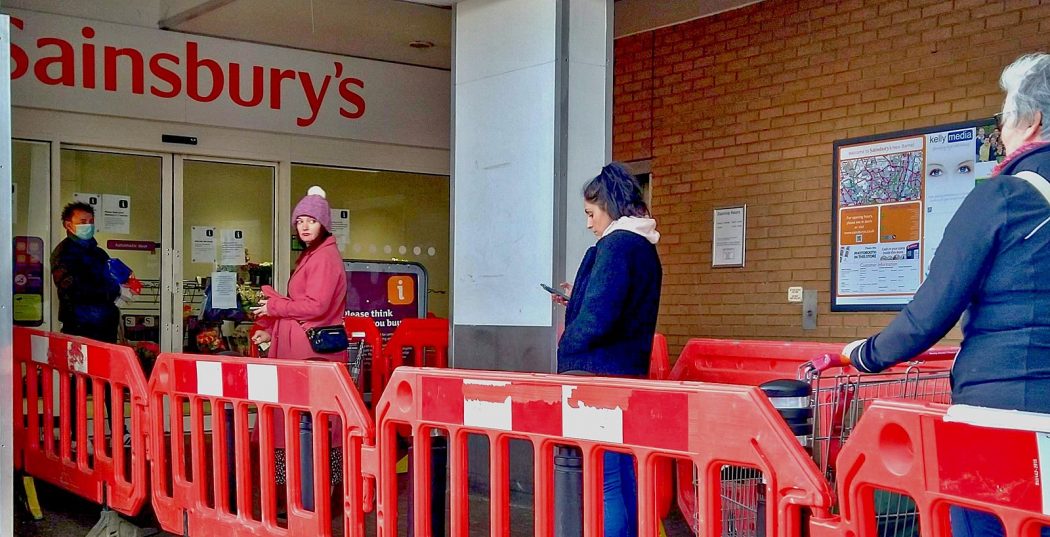Anyone who has worked in retail knows that making fun of customers is more than just our favorite pastime — it’s a survival strategy. When I returned to work as a cashier at my local hardware store this summer, I found this dynamic unchanged, but with a distinctly coronavirus flavor. We laughed at the man who (illegally) came into the store without a mask and was then enraged that we didn’t have plexiglass to protect the customers, at the man who made a mask by stuffing paper towel up his nostrils, at the lady who really could just not understand that, despite the complete shutdown of manufacturing, why we couldn’t “just get MORE shovels?”
The pandemic craze seemed to extend to my boss as well, who demonstrated how to cut the cleaning wipes into fourths and reuse them until they were beyond bone dry, berated us for cleaning without permission, and showed us how a single spritz of disinfecting spray two feet over the shopping carts would magically cleanse the whole lot of them.
Why is it better for me to get sick than you?
While I handled customer complaints in my local hardware store, my father and sister worked at a local grocery chain, and my friend worked as a hostess at a restaurant. Having all worked in customer service this summer, we found an incredible overlap in our experiences. We were all caught between a privileged customer base, scared and venturing out into the slowly opening retail space for the first time, and the blasé, dismissive attitude of our blue-collar bosses who were eager to squeeze any profit they could in an uncertain, rapidly-evolving COVID economy.
After numerous experiences with disgruntled customers, I started to grow accustomed to the usual, unpleasant interactions. So when yet another nervous customer incredulously asked me whether he really had to touch the pad to sign for his purchase, I knew what was coming next. I told him that a signature was needed to complete the process and he asked — in a tone that suggested I really should have thought of this before — that I should be more conscientious, that I really haven’t considered the danger he is putting himself in by going out, and why I couldn’t touch the pad for him.
This one request, which I got countless times over the summer, demonstrates the particular power dynamic that is always present between the white-collar and the blue-collar — the customer who is king, and the customer service employee who is his subject. Why should I have to touch the pad? Why is it better for me to get sick than you? Nevermind that the probability of getting COVID from surfaces is relatively small — this customer evidently thought it was enough of a risk, and that it was better to expose me than him. Again, why is it better that I get sick?
…our white-collar customers see an employee, not a person.
It’s so simple and yet reveals the dynamic that everyone who works in a service industry knows implicitly — our white-collar customers see an employee, not a person. Although always disrespectful, this disregard for lower-class workers becomes dangerous, and potentially life-threatening, in a pandemic.
Maybe I have pre-existing conditions. Maybe I live with my ninety-year-old grandma. Maybe my little sister has asthma. Maybe I simply don’t want to get sick. Maybe the customer could touch the pad and then sanitize his hands right after. If he is so scared for himself, why does he not have more compassion for the minimum-wage workers who, having worked in these conditions for months already, are much more likely to get COVID than him? If he considers the virus so dangerous that he can’t touch a pad, why is he willing to risk my health to step out for some fresh air and a can of paint?
And when you venture back into the world again, remember that we have been here the whole time, but out of necessity.
Now that COVID-19 is on the rise again in Montreal, customers can do us all a favor. If your fear of contracting the virus is so great that it prevents you from showing basic kindness and patience to a student trying to save up money for college (like me), to a 16-year-old girl who got her first job in the middle of this mess (like my sister), to a woman trying to support her mother’s end-of-life care (like my coworker), please stay home. And when you venture back into the world again, remember that we have been here the whole time, but out of necessity. So if we are weary, not on edge like you, not nervous like you, know that it’s not because we don’t care about coronavirus, but because this is our life.
We all know that no individual customer can make lockdown or unemployment benefit decisions, or even provide us masks and cleaning materials that our bosses won’t. We know you can’t change the system that has underpaid, overworked, and exploited us during this pandemic. But what individual customers can do to make our jobs a little less painful is be conscientious towards employees by recognizing us as people, not robots. And maybe then you won’t become just another funny — but frustrating — story I take home at the end of the day.








